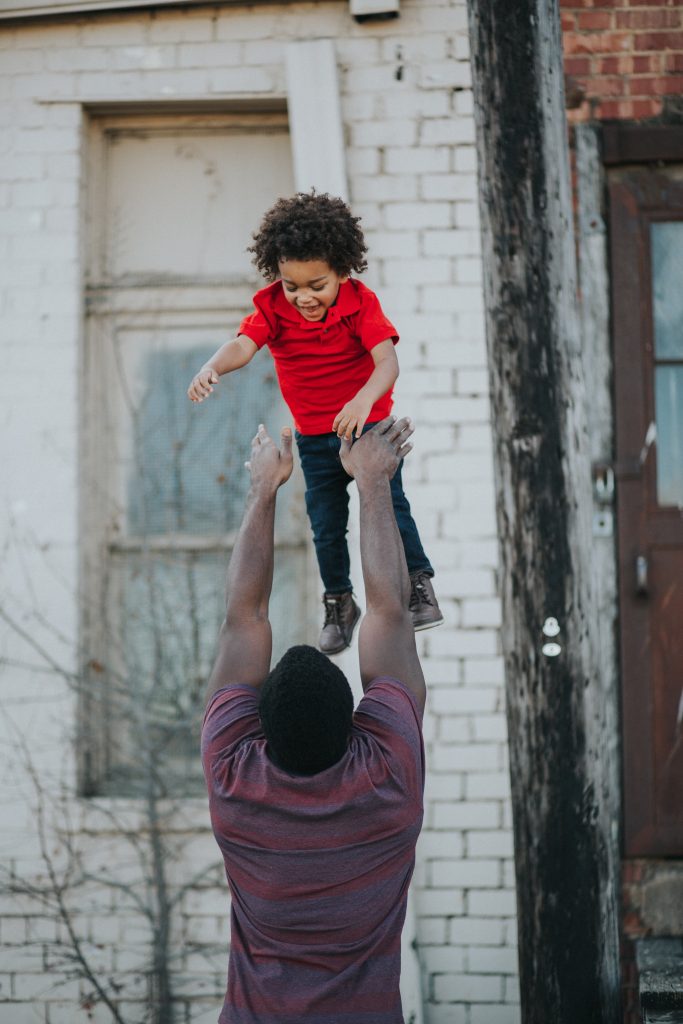Child Counseling (Play Therapy)
“For children, play is serious learning. Play is really the work of childhood.” – Mr. Rogers
child counseling
“The most important developmental phase of our entire life
is the time between zero and three years.”
child counseling
That’s amazing news, considering that’s the time in our lives we don’t remember.
Parenting is a tough business. As parents, we fear messing up the job in a big way! And, because communication with children can be difficult, child counseling is often used with children because they lack the verbal and cognitive skills to communicate their feelings and thoughts with appropriate words.
Children are extremely imaginative and creative, so Child Counseling (Play Therapy) lets them express themselves in a way that feels natural, safe, and comfortable. Some kids are comfortable speaking to a child counselor from the beginning, while others open up after a few weeks of play. Even teens who think they are too old “to play” respond well to a combination of art therapy and traditional counseling.
Here’s the thing: An adult’s self-confidence and self-esteem are created during this very early stage of life. Therefore, we want to make sure all kids get a great start! We can do that with child therapy.
Benefits of Child Counseling & Play Therapy

With play therapy, your child will…
- Develop a trusting attachment to their therapist so they can process through what they feel and what’s bothering them. In turn, this will increase self-esteem, increase self-confidence, and helps develop more self-control.
- Learn new skills with the therapist, allowing them to practice healthier ways of interacting with peers and adults in real life.
- Develop greater empathy and understanding of others, helping to create more respect and kindness in their everyday lives.
- Learn better self-control when they realize they can freely express what they feel and what they need in productive ways.
- Learn to understand parents, and parents understand their child so that the adults can better support and help their child.
Our State of the Art Play Spaces
Why Child Counseling (Play Therapy)?
At I Choose Change Counseling Center, play therapy is considered a main staple in our practice because it is a structured, theoretically-based approach to counseling that helps children communicate and process what they’re feeling in a way that is most comfortable for them in their developmental phase of life.
Registered Play Therapists (RPT)s are strategic in the way they utilize their toys and play area so as to help children express what is troubling them when they do not have the verbal language to express their thoughts and feelings.
The action of play is the expression of emotion.
“The toys are the words and play is the language (Landreth, 2002).” Play therapy helps promote a positive relationship between therapist and child, and the therapist can provide a corrective emotional experience while promoting cognitive development and helping a child with their inner conflicts and dysfunctional thinking.

All humans like to play!
Child counseling is a great way to get children to act out difficult feelings and thoughts to develop a greater understanding of them. This doesn’t make sense for adults because we have the ability to problem-solve and rationally think through our issues, but children don’t process what bothers them the same way. In play therapy, we meet them where they’re comfortable and help them work through what bothers them.
Play is how children work through their rough patches.
Children and teens (and even adults!) lose themselves in play. Whether in the sandbox, through a puppet show, or with a one-of-a-kind art masterpiece, emotional expression is realized through play. Most children between the ages of 3 and 13 enjoy the playroom. The older kids (13 to 17) may enjoy some play or art within their talk therapy session.
Children express what they feel while playing because they don’t yet have the cognitive ability to “talk through” issues the way teens and adults do.
Playing gives children a safe outlet to experience feelings and think thoughts that are difficult and hard to reach. Seeing a Child Counselor is a great way to get children to “talk.”
Child Counseling (Play Therapy)
can help with these issues:

- Decision-making skills
- Divorce
- Acceptance
- Self-image
- Social skills
- Grief and loss
- Depression
- Anxiety, worry, phobias
- School adjustment
- Anger management
- Attentional difficulties (ADHD)
- Cultural adjustment
- Family adjustment
- Behavioral concerns
- Learning disabilities
- Coping with violence
- Nervousness and Anxiety
- Trauma
- Sleeping difficulties
Parent Involvement
We believe caregivers can be the best therapists for the children, so we want to make sure you’re involved with the treatment of your child. While we engage in play with your child, develop rapport with them, and begin to understand their special language through play.
As change begins to happen with your child, we’ll show you how to be your child’s best therapist – how to communicate differently and help him express himself.
What to expect:
- Meet your therapist alone for the first appointment. This will allow time and space to understand you, your child, and your family dynamics before moving forward with therapy.
- Meet 1:1 with your child alone for subsequent sessions for 40-45 minutes, depending on the attention span of your child. Your therapist will spend an additional 5-7 minutes updating you at the end of each session.
- Meet with you 1:1 without your child, every 3-4 sessions or as needed, to update you on progress. Your child’s appointments are confidential, but your therapist will give you pointers and direction so you can help guide your child at home.

Come to the couch!
Schedule your appointment and let’s work on this together. Or, call 214-547-1318.






